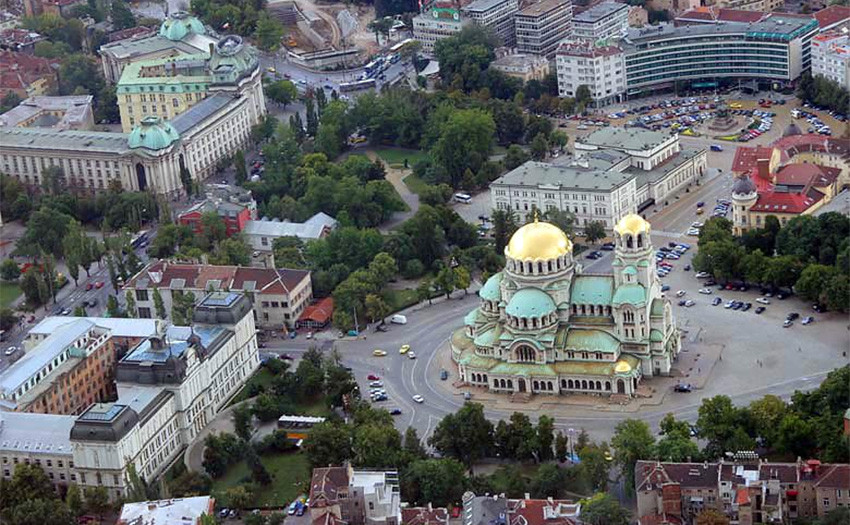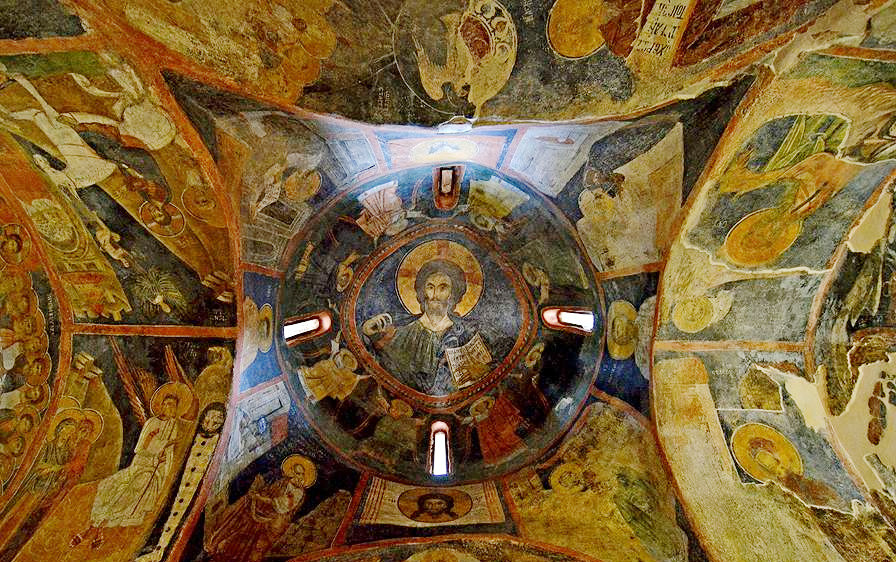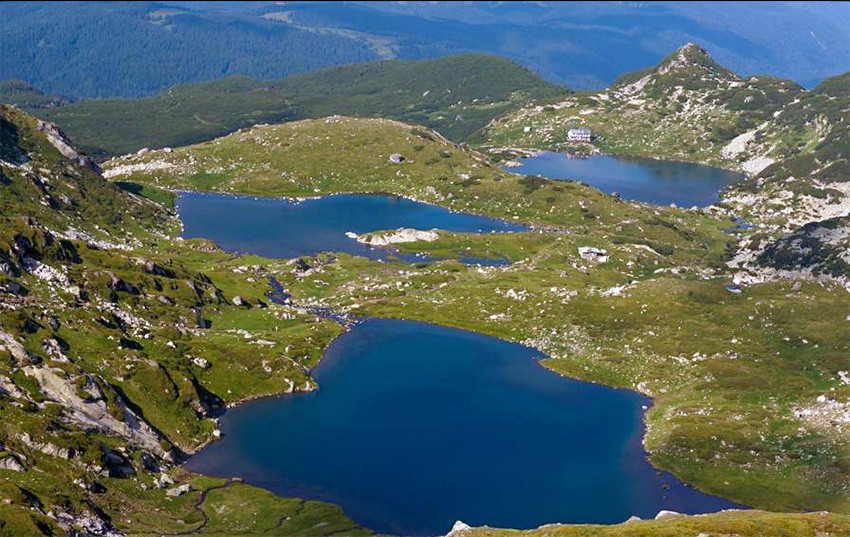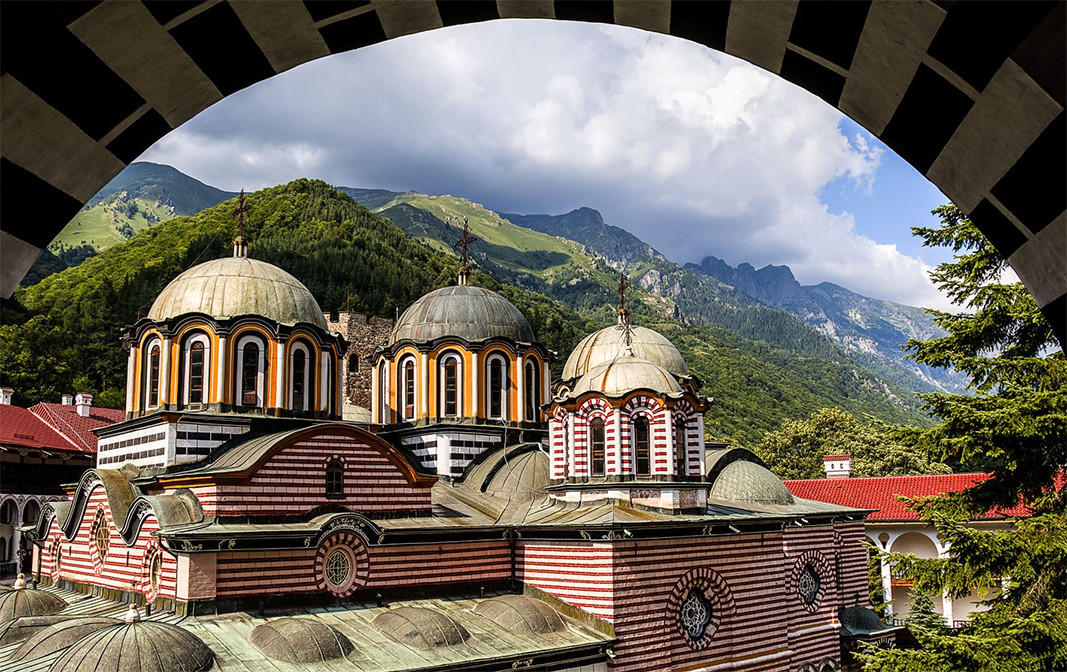Forget the coast and its hordes of tourists - inland Bulgaria is home to hillside monasteries, dazzling lakes and charming cities. That's what freelance journalist Charlie Kitcat writes for the British tabloid "The Daily Mail". His journey in Bulgaria starts in its capital city.
"Sofia itself is a joy. A city of almost 1.3 million people, it offers charm, beauty and culture in abundance. And, thanks to the modern Metro, it’s easy to reach from the airport. Suddenly, we find ourselves among the ruins of the Roman city of Serdica. A short stroll away, the golden-domed Alexander Nevsky Cathedral towers over us, and next door, St Sofia Church stands modestly, hiding Roman mosaics in its underbelly. Close by, there are synagogues and mosques, reminders of the city’s diverse heritage."

The traveller visits the foothills of Sofia's neighbouring Vitosha mountain,where the Unesco-heritage Boyana Church "hides frescos to rival Michelangelo, only from three centuries before".

The hustle and bustle of modern urban life also strike an impression with the guest: "Communism here fell in 1990, but Bulgaria’s transition towards capitalism was challenging. Although the main streets buzz with stylish bars and burger joints, the city’s tired Soviet-style buildings illustrate the harsh reality faced by many Bulgarians."
He finishes the day at a traditional Bulgarian restaurant on the outskirts. "Plates of steaming chicken livers, pork stew and a mountain of Bulgaria’s most iconic dish, Shopska salad (like its Greek cousin but with sirene cheese instead of feta) arrive at our table. A circle of locals dance to traditional folk music. Onlookers sip small glasses of home-brewed rakia. Soon enough, we’re on the dancefloor."
This is followed by an invigorating trip with a rent a car towards the Seven Rila Lakes trail. "We jump aboard the Pionerska chairlift before stumbling up the first steep, winding track. The path evens out as the landscape transforms into a flowery meadow glittering with tumbling waterfalls and winding streams. The first glacial lake appears as we climb above 2,300 m, then six more emerge. After two hours of rambling, we reach the top. Below us, the seven lakes sparkle like sapphires. An immense panorama of rolling hills and distant towns stretches nearly all the way back to Sofia."

The magic of the highest mountain in Bulgaria - Rila, enchants Charlie Kitcat. He spends a night in a modest room chambers in Rila Holy Monastery and describes his experience:
 "The first light shines through the curtainless window, then I hear a faint trickle of water and a chorus of birdsong....This isn’t Tuscany or Provence. Instead, I’m surrounded by soaring trees, brown bears and Eastern Europe’s tallest peaks in Bulgaria’s holiest location, Rila Monastery. I swing open the door of my modest £18-a-night room to reveal black-and-white enclaves, narrow arches and circular domes topped with crosses. Below me, in the cobbled courtyard, the monastery begins its daily routine./.../ Thousands of monks have resided in Rila Monastery since its foundation in the early 900s. It was established by St Ivan of Rila, a hermit revered as a saint while still alive, before the area around his cave was gradually transformed. Today, around 60 monks call it home. The occasional tourist is welcome if you call ahead and then drive two hours south from Sofia, the country’s ancient capital city
"The first light shines through the curtainless window, then I hear a faint trickle of water and a chorus of birdsong....This isn’t Tuscany or Provence. Instead, I’m surrounded by soaring trees, brown bears and Eastern Europe’s tallest peaks in Bulgaria’s holiest location, Rila Monastery. I swing open the door of my modest £18-a-night room to reveal black-and-white enclaves, narrow arches and circular domes topped with crosses. Below me, in the cobbled courtyard, the monastery begins its daily routine./.../ Thousands of monks have resided in Rila Monastery since its foundation in the early 900s. It was established by St Ivan of Rila, a hermit revered as a saint while still alive, before the area around his cave was gradually transformed. Today, around 60 monks call it home. The occasional tourist is welcome if you call ahead and then drive two hours south from Sofia, the country’s ancient capital city
Compiled by Elena Karkalanova
The steam locomotive train rides organized by the Bulgarian State Railways (BDZ) on various occasions and holidays for lovers of old trains have become a tradition. The puffing train, which emits a lot of steam and smoke, and its sonorous whistle are..
Sakar, one of the most mysterious and little-known mountains in Bulgaria, is slowly but surely becoming a new destination for sustainable tourism. The area, located between the Eastern Rhodopes and Strandzha Mountain, has remained..
As in 2024, this season's vacancies in the tourism industry will be filled by workers from third countries . According to employers from the Northern Black Seacoast, entire Turkish teams are employed in the kitchens of Albena resort. Workers from..
The steam locomotive train rides organized by the Bulgarian State Railways (BDZ) on various occasions and holidays for lovers of old trains have become a..

+359 2 9336 661
